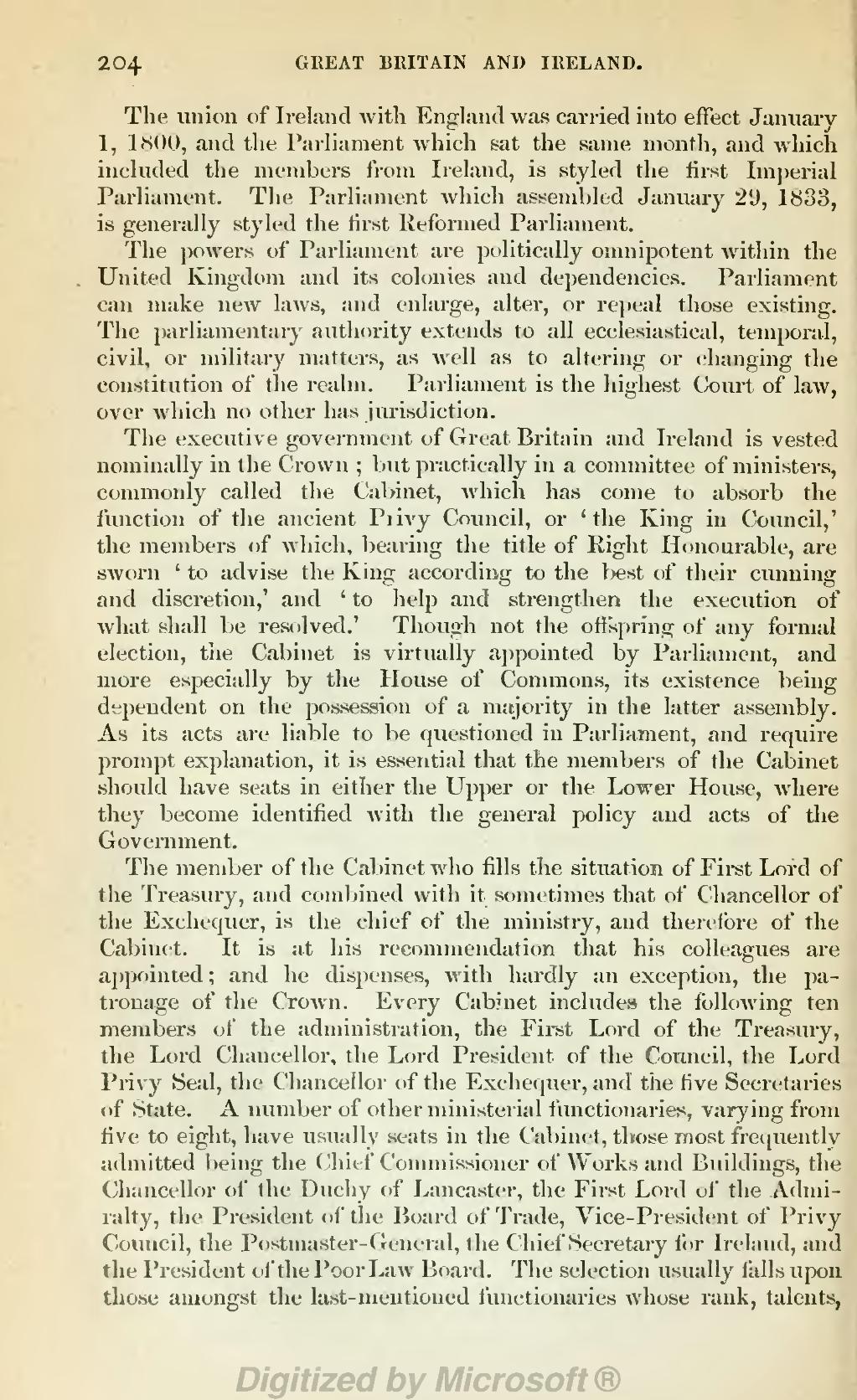The union of Ireland with England was carried into effect January 1, 1800, and the Parliament which sat the same month, and which included the members from Ireland, is styled the first Imperial Parliament. The Parliament which assembled January 29, 1833, is generally styled the first Reformed Parliament.
The powers of Parliament are politically omnipotent within the United Kingdom and its colonies and dependencies. Parliament can make new laws, and enlarge, alter, or repeal those existing. The parliamentary authority extends to all ecclesiastical, temporal, civil, or military matters, as well as to altering or changing the constitution of the realm. Parliament is the highest Court of law, over which no other has jurisdiction.
The executive government of Great Britain and Ireland is vested nominally in the Crown; but practically in a committee of ministers, commonly called the Cabinet, which has come to absorb the function of the ancient Privy Council, or 'the King in Council,' the members of which, bearing the title of Right Honourable, are sworn 'to advise the King according to the best of their cunning and discretion,' and 'to help and strengthen the execution of what shall be resolved.' Though not the offspring of any formal election, the Cabinet is virtually appointed by Parliament, and more especially by the House of Commons, its existence being dependent on the possession of a majority in the latter assembly. As its acts are liable to be questioned in Parliament, and require prompt explanation, it is essential that the members of the Cabinet should have seats in either the Upper or the Lower House, where they become identified with the general policy and acts of the Government.
The member of the Cabinet who fills the situation of First Lord of the Treasury, and combined with it sometimes that of Chancellor of the Exchequer, is the chief of the ministry, and therefore of the Cabinet. It is at his recommendation that his colleagues are appointed; and he dispenses, with hardly an exception, the patronage of the Crown. Every Cabinet includes the following ten members of the administration, the First Lord of the Treasury, the Lord Chancellor, the Lord President of the Council, the Lord Privy Seal, the Chancellor of the Exchequer, and the five Secretaries of State. A number of other ministerial functionaries, varying from five to eight, have usually seats in the Cabinet, those most frequently admitted being the Chief Commissioner of Works and Buildings, the Chancellor of the Duchy of Lancaster, the First Lord of the Admiralty, the President of the Board of Trade, Vice-President of Privy Council, the Postmaster-General, the Chief Secretary for Ireland, and the President of the Poor Law Board. The selection usually falls upon those amongst the last-mentioned functionaries whose rank, talents,
